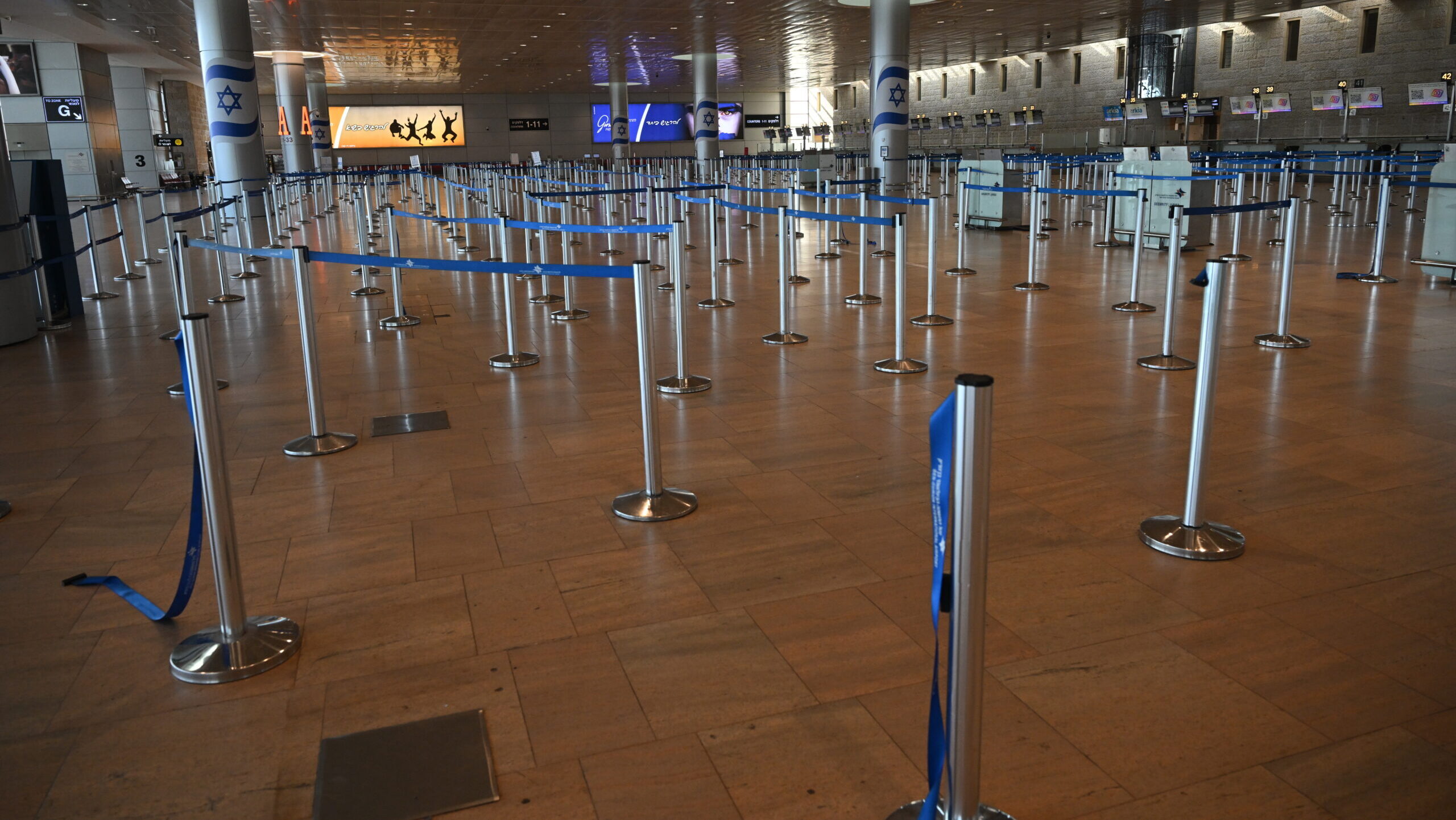With Israeli Tourism Industry in Crisis, ‘Can We Salvage Christmas?’ Expert Asks
Ben Gurion Airport is shut, and rescue flights are nearly empty, with travelers to and from Israel facing soaring costs and red tape. ‘We’re isolated in a way no other Western country would be,’ a major tour operator tells TML.
Israel’s war with Iran may be wrapping up, but for now, its skies remain largely closed, leaving thousands stranded and the travel industry in turmoil. In an exclusive interview, Mark Feldman, CEO of Zion Tours and a veteran of Israel’s tourism sector, detailed the unprecedented scale of the crisis facing Israeli and international travelers alike.
“We have people stranded in Montenegro, New York, Budapest, all over the world,” Feldman said. “The only way to get into Israel right now is by land or by sea, and they’re doing it. From Aqaba, from Sharm el-Sheikh, by boats from Larnaca. Or they’re just staying put.”
The chaos has left approximately 100,000 Israelis stranded abroad and countless tourists stuck in Israel. Flights have been severely limited since the closure of Ben Gurion Airport nearly 10 days ago, a shutdown Feldman compares to the aftermath of 9/11, but with even fewer options.
“This is the longest I’ve seen our skies closed in my three decades here,” he said. “Nine days is a long time to cut off a country. We’re isolated in a way no other Western country would be.”
While Israel has started to permit limited “rescue flights,” they are tightly regulated. Feldman explained that only 50 passengers are allowed on inbound rescue flights, a number dictated by both cost constraints and minimal onboard crew.
These rescue flights are being operated essentially for free. So they’re flying in mostly empty, with only 50 passengers to keep expenses down. And even those passengers must sign a declaration promising to stay out of the country for at least 21 days.
“These rescue flights are being operated essentially for free,” he said. “So they’re flying in mostly empty, with only 50 passengers to keep expenses down. And even those passengers must sign a declaration promising to stay out of the country for at least 21 days.”
Adding to the confusion, anyone wishing to leave Israel must apply for permission from an Exceptions Committee, a bureaucratic echo of the COVID-era travel restrictions.
“My job is to get people where they need to go,” Feldman emphasized. “But right now, I can’t promise they’ll get back.”
This holiday season, give to:
Truth and understanding
The Media Line's intrepid correspondents are in Israel, Gaza, Lebanon, Syria and Pakistan providing first-person reporting.
They all said they cover it.
We see it.
We report with just one agenda: the truth.


Travelers lucky enough to find a way out are paying dearly. El Al, Israel’s national carrier, has been accused of price gouging, charging as much as $2,500 for a one-way economy ticket to New York. Some are opting for maritime routes, despite the high costs and long durations.
“There are people renting private yachts or paying 1,000 euros [$1,200] per person on chartered boats,” Feldman said. “A normal ferry ticket would be under 500 euros [$600]. Someone’s making money here, and it’s not the passengers.”
He added that the government-chartered ships evacuating citizens also appear to be inflating costs. “It’s not fair, but it’s happening,” he said.
With war continuing in Gaza and no resolution in sight, the entire summer tourism season is effectively canceled. Feldman noted that even before the recent escalation, bookings for Easter and the Jewish High Holidays were already sparse.
Tourism for 2025 is finished. We’re already in late June. There are no summer bookings. Fall is gone. Can we salvage Christmas? Maybe. But that’s how far ahead we have to look.
“Tourism for 2025 is finished,” he said bluntly. “We’re already in late June. There are no summer bookings. Fall is gone. Can we salvage Christmas? Maybe. But that’s how far ahead we have to look.”
The impact is not just economic. Tour guides, once in high demand, have left the field entirely, and hotels—half empty—are still charging premium prices. One congressional delegation was quoted $750 per night, even at a 30% occupancy rate.
“There’s no oversight,” Feldman said. “Hotels are charging whatever they want. It’s an unspoken cartel. If one charges $700, they all do.”
Flying remains risky. Rescue flights have been forced to circle Larnaca, Cyprus, for safety during missile attacks. Land routes through Jordan and Egypt also come with government warnings.
“This is not like the pandemic,” Feldman explained. “The rest of the world is functioning. The US is preparing for the Fourth of July, and we’re trying to figure out how to get out—or back—into the country.”
Despite the challenges, Feldman expressed faith in the resilience of Israelis and the eventual recovery of the industry.
Israelis bounce back quickly. We know this war will end. And when it does, the tourists will come back, guides will get recertified, the airlines will return.
“Israelis bounce back quickly,” he said. “We know this war will end. And when it does, the tourists will come back, guides will get recertified, the airlines will return.”
Programs like Birthright have also faced disruption, with thousands of students caught in the middle. Feldman said he has received emotional pleas from parents demanding that their children be brought home.
“The kids? Most of them are sticking it out,” he said. “But parents are panicking, rightfully so. Birthright has taken a hard line: either leave now or sign a waiver that the program is no longer responsible.
Feldman closed the interview with a call for leadership.
“I’m hoping the prime minister will soon declare that the objectives have been met,” he said. “This can’t go on. The economic damage is massive. Restaurants are shuttered, malls are empty, my own staff is home, legally. We’re not just grounded; we’re paralyzed.”
Until then, it’s a waiting game on land, by sea, and in the skies.

